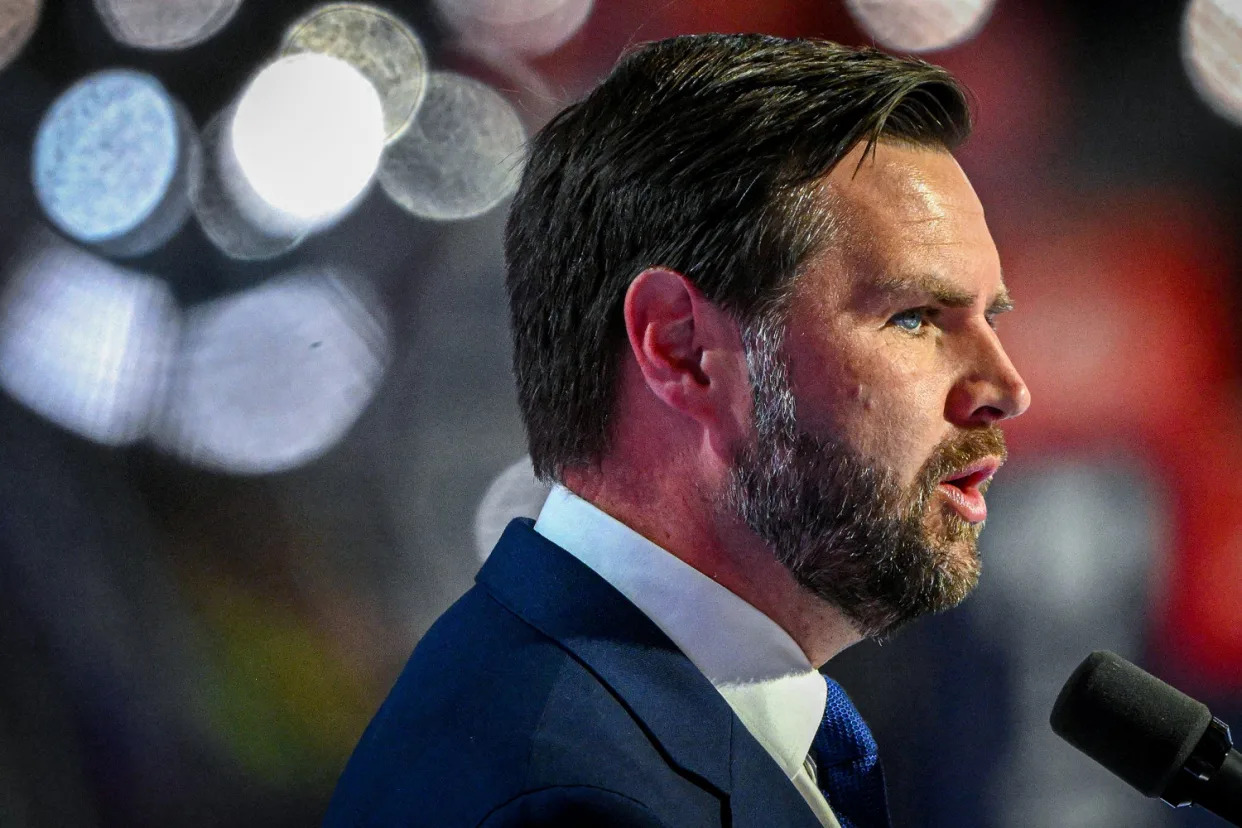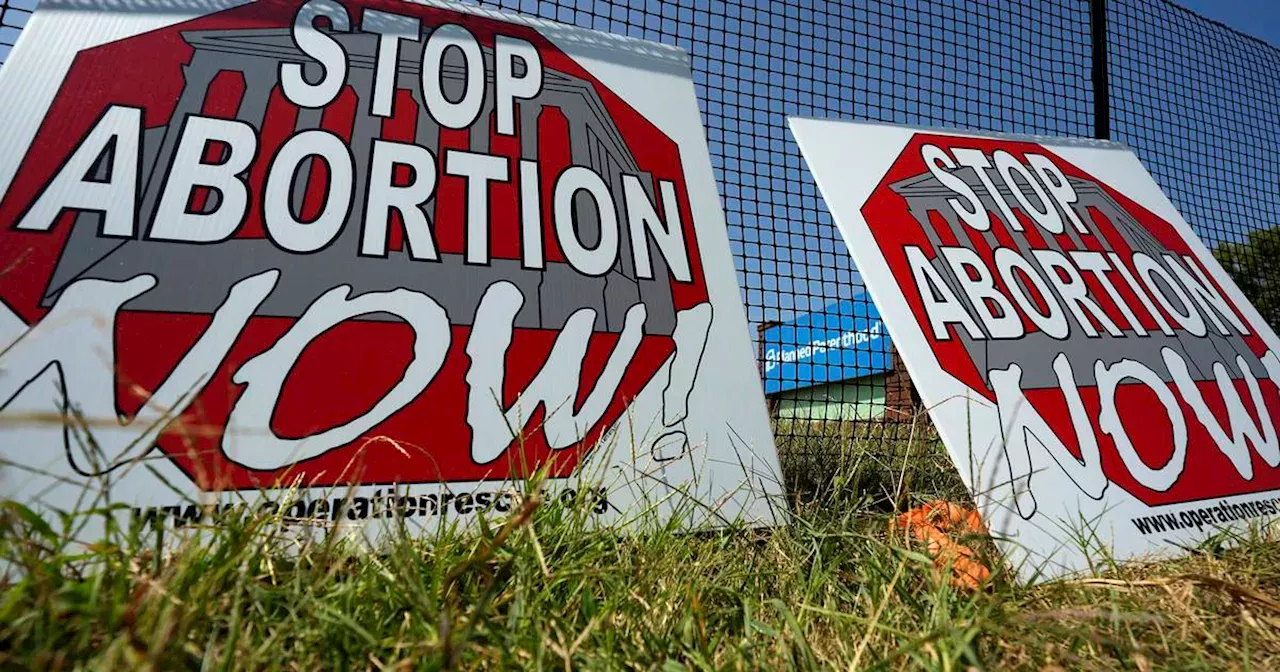In his 2016 memoir, wrote in awe of his older sister, who, despite an upbringing filled with trauma, broke the cycle of abandonment and dysfunction that defined their childhood. “There was something heroic about Lindsay’s marriage — that after everything she’d witnessed, she’d ended up with someone who treated her well and had a decent job,” Vance, , observed in the pages of “ .” His sister had, in Vance’s words, “built a life almost in opposition to the one she left behind — she would be a good mother, she would have a successful marriage (and only one).
” Her husband, he wrote, “never mistreated her,” adding that was “all I ever wanted in a mate for my sister.” The passage is laden with new meaning now. People close to Vance say his relationships with the women who raised him are key to understanding his worldview on the thorny cultural issues for which he in his first month as Donald Trump’s running mate.

He internalized violent episodes and other hard lessons of his youth and idealized the more conventional family dynamics he never knew, forming fiercely held opinions about marriage, children and families that have become the basis of Democrats’ case against him as a national candidate. Vance, whose comments mocking “ ” in politics recently resurfaced, is the son of a single mother who battled drug addiction and, according to his book, once pulled over the car “to beat the s---” out of him. Vance’s rationalization that parents in abusive marriages is largely informed by his grandparents’ combustible but perseverant marriage.
“Everybody has problems. Everybody has some dysfunction in their family,” Lori Meibers, Vance’s aunt and one of the women who took him in when his mother could not, said in an interview with NBC News. “He’s seen what it’s like to be a kid that struggled.
” “My sister had five husbands, and that’s not to mention the men that were in and out of their lives that she didn’t marry before she got her crap together,” added Meibers, whom Vance refers to as Aunt Wee. “He’s seen that side of life and living.” Vance, in a recent interview aboard his campaign plane, acknowledged that his upbringing shaped his sharp opinions.
He also defended his more provocative comments, describing them as the starting point for a debate about the public policies that can help young families, rather than a “broad-stroke criticism of women,” as Democrats have contended. “I was in a lot of ways raised by strong women, from my grandmother to my mom to my aunt to my sister, and everybody played a big role,” Vance said as his wife, Usha, sat beside him. “Certainly I see a lot of the struggles that are going on in the country through the eyes of a single mom, because I was raised in part by a single mom or a grandmother.
” Vance’s socially conservative views are well-known in Ohio, where he won his Senate seat two years ago with a strong anti-abortion stance. Though he for national abortion restrictions in the past, he has deferred to Trump, who has said he wants to leave the issue to the states.The 2022 Senate race, in which Vance competed for attention from Trump and Republican voters in a crowded primary, is the source of many of the old comments that his opponents have wielded Democrats still circulate in which Vance, who has three young children, called universal day care initiatives a “class war against normal people.
” Vance questioned the value of “childless cat ladies” — a comment he directed at Vice President Kamala Harris and other Democratic leaders — in in which he also suggested that people with children deserve to have more voting power. (He the remark was intended as a “thought experiment,” not as a policy proposal.) The same year, Vance held up his grandparents’ “incredibly chaotic marriage” as an example to younger generations of men shying away from the responsibilities of fatherhood.
In “Hillbilly Elegy,” he had written about how his grandmother once soaked his grandfather in gasoline and briefly set him on fire after he returned home from a night of heavy drinking. “This is one of the great tricks that I think the sexual revolution pulled on the American populace,” Vance said at attacking the idea that couples in marriages that “were maybe even violent, but certainly they were unhappy,” could solve their problems through divorce. “Maybe it worked out for the moms and dads, though I’m skeptical,” Vance added, “but it really didn’t work out for the kids of those marriages.
” In a on Fox News’ “Fox & Friends,” Usha Vance was asked about her husband’s emphasis on the role of families. “It comes from the fact that he knows that he would not be anywhere near where he is today if he hadn’t had family members who were looking out for him every step of the way,” she said. “I think it comes from seeing my family and knowing that the stability and sort of calm that I provide in our family life comes from, you know, all of the support that I had — just the faith that things would be OK because I had people behind me.
” Democrats continue to attack Vance for his positions and past comments. “If he went through some of these situations in his own childhood, I’m sorry he went through that,” said Elizabeth Walters, who as chair of the Ohio Democratic Party has watched Vance’s rapid rise in politics. “On the campaign, we’re dealing with JD Vance as an adult, not as a child, and JD has told us time and again who he is as an adult — so why shouldn’t we believe him? His views are extreme, they’re out of touch, and they are dangerous for women.
” Sarafina Chitika, a spokesperson for Harris’ presidential campaign, accused Vance of pursuing an anti-woman agenda to “control their most personal health care decisions, and rip away their fundamental freedoms.” Chitika, in an emailed statement, added that “women across America know that a vote for Harris-Walz is a vote for freedom.” Some on the right have raised concerns, as well.
On his last month, former Rep. Trey Gowdy, R-S.C.
, told Vance he had heard from conservative women who were “disappointed” by the “cat ladies” remarks before he asked for an explanation. Meibers, Vance’s aunt, accused the media of painting an incomplete picture of his character.“I feel like, in some ways, it’s almost like he’s been demonized,” Meibers said.
“But I get it. It’s part of the game with politics. But I do think JD, he stands firm in his foundation.
” “Let’s be honest,” she added. “Our family history is out there for all to see. And when he wrote the book originally, I think a lot of people in the family, we were like, ‘Oh, maybe this isn’t such a great idea to air all the dirty laundry.
’ But just like anything, when something has a light shined on it ...
I think it helps.” Aside from Vance himself, the central character in “Hillbilly Elegy” is his grandmother , known as Mamaw. She is portrayed in the book — and in the film adaptation by Glenn Close, who was nominated for an Academy Award — as a profane but loving matriarch and self-described “crazy b----” herding a family often in crisis.
In the book, Vance recalled the time Mamaw pleaded with him to provide his mother with a clean urine sample so she wouldn’t fail a drug test and lose her nursing license. He also wrote of the child Mamaw lost in infancy and the eight miscarriages she suffered between the births of her son and two daughters: “Mamaw carried the emotional scars of nine lost children for her entire life.” Meibers also frames her nephew’s narrative around Mamaw.
“You know, she was not a traditional grandmother. She carried a gun; she smoked cigarettes; she wore big, baggy, comfy clothes,” Meibers said. “She was nontraditional, and I can honestly say, as a kid, I was embarrassed by that sometimes.
But as I got older, I realized she was just showing her strength. She was determined, and we all know how much we were loved. I mean, that to me is the foundation in our family — the love that she taught us.
” Meibers recalled a summer road trip to Kentucky when Vance was young. Headed south on Interstate 75, a motorcyclist pulled alongside the family car and exposed himself. “My mom, very casually, she said, ‘Somebody hand me my purse.
’ So one of the kids handed her this giant purse, and she reached in it and she took out her .45 and she just tapped it against the window,” Meibers said. “The guy saw that and just kind of sped off.
...
That’s the kind of thing JD was exposed to his whole life: this crazy woman who took nothing from no one.” Vance’s relationship with his mother, Beverly Aikins, was rougher — from the time he lied about the abusive incident in the car so she would avoid prosecution to the time he helped her pass the drug test. (She has been sober for nearly 10 years, Vance said in his speech at last month’s Republican National Convention.
)In his book, he described Aikins as “more roommate than parent” and wrote that the “revolving door of father figures” she would bring around was one of the things he hated about his childhood. Vance also recalled how his mother nurtured his love of football and reading and made sure he and his sister were introduced to people “from all walks of life.” “Her friend Scott was a kind old gay man who, she later told me, died unexpectedly,” Vance wrote.
“She made me watch a movie about Ryan White, a boy not that much older than I was, who contracted HIV through a blood transfusion and had to start a legal fight to return to school. Every time I complained about school, Mom reminded me of Ryan White and spoke about what a blessing it was to get an education.” Vance was born James Donald Bowman, named for his father, who left Vance’s mother “around the time I started walking,” he wrote in his memoir.
His mother later renamed him James David Hamel, using an uncle’s name along with the surname of an adopted father. When he and Usha married, both took Vance as their last name. His aunt’s and sister’s marriages became models for his own.
Meibers attributed Vance’s 2019 conversion to Catholicism to her husband, Dan, a devout Catholic. “Now he’s got Usha, and he’s got such a beautiful family,” Meibers said. “And I think now he sees the other side .
.. life and a happy marriage.
” This article was originally published on.



















